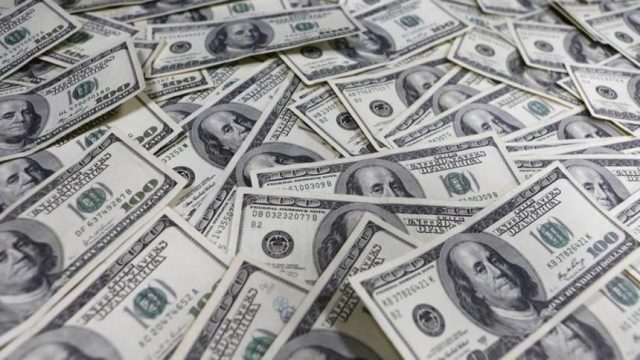North Dakota’s Budget Problems Have to Do With Spending Not Tax Cuts

One hundred dollar notes are seen in this photo illustration at a bank in Seoul January 9, 2013. Japan's drive to weaken the yen poses a threat to big South Korean exporters such as Hyundai Motor, but Koreans may benefit as the new president aims to shift policy away from supporting big exporting conglomerates. The yen's tumbling by some 10 percent to the dollar in the December quarter at a time when the won has been on the rise sent the shares of big exporters falling and raised concerns among the policymakers in Seoul. Picture taken January 9, 2013. To match Analysis KOREA-CURRENCY/ REUTERS/Lee Jae-Won (SOUTH KOREA - Tags: BUSINESS) - RTR3CGGO
 As the state legislature grapples with budget challenges in Bismarck a talking point has emerged from our friends from the left about why those challenges are so large.
As the state legislature grapples with budget challenges in Bismarck a talking point has emerged from our friends from the left about why those challenges are so large.
It’s the tax cuts, they tell us. An example of this is Democrat Party Chairwoman Kylie Oversen who was a very, very far left lawmaker herself until last year when voters in her district replaced her with more moderate Republican leadership.
Oversen is reacting to budget cuts at the University of North Dakota Law School and – surprise! – it turns out it’s all the fault of those tax cutting Republicans.
This narrative may be convenient for demagogues like Oversen who are only interested in winning over the support of the lightly informed, but it’s not based in fact.
The first problem is that North Dakota Republicans really did not cut taxes all that much. Most of the hundreds of millions of dollars in tax relief they’re fond of touting was in the area of property taxes, with most of it composed of the state either directly buying down local property taxes or transferring local spending (specifically K-12 obligations) into the state budget.
We can debate about whether or not this approach has effectively reduced local property taxes, but what is beyond dispute is that it created additional burdens for the state budget.
This supposed tax relief, perceived only from the perspective of the state’s budget, looks a whole lot like spending.
The income tax cuts the Legislature passed were, by comparison, rather small. And despite the income tax cuts, general fund revenues from income taxes are still above pre-oil boom levels.
In fact, overall general fund revenues through December still haven’t fallen to anywhere near pre-oil boom levels. This graph, based on revenue reports from the Office of Management and Budget, shows the trend line for general fund revenues for the current 2015-2017 biennium compared to the same time period for the previous four biennia (click for a larger view).
As you can see from the purple lines representing the current biennium, while general fund revenues are down significantly from oil boom peaks, they are still well above pre-oil boom levels even without the $425 million in transfers from the Budget Stabilization Fund which I did not include in these figures.
The problem is not on-going revenues. The problem is spending built on peak oil boom revenues. And make no doubt about it, spending in North Dakota boomed right alongside oil production as this chart from Legislative Council shows. The average biennial increase in general fund spending from 2007-2009 to the current biennium was 23.5 percent.
What we have had in North Dakota is unsustainable spending growth built on unsustainable revenues. That is the crux of our problem.
Tax policy is a part of that problem, but mostly because the state went about trying to implement property tax relief by creating for itself greater obligations for local spending.
Governor Doug Burgum has said he wants to address the budget issues by making our government more efficient. He has said that tax cuts are off the table, and while that may not be entirely true in the margins, I think it’s safe to say that he won’t be backing a hike in, say, income taxes or the sales tax or anything like that.
So Burgum’s argument is that North Dakota’s problems have to do with spending. And based on all the data available to us, he’s right.
Had Republicans, in the last two biennia, been a bit less profligate our adjustment from oil boom era budgets to post-boom realities would be much easier.
But keep in mind that, had Oversen and Democrats had their way, the state would have spent even more.






